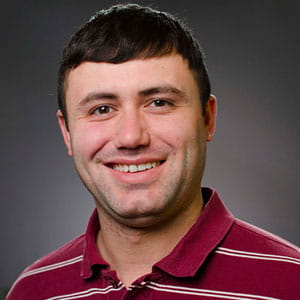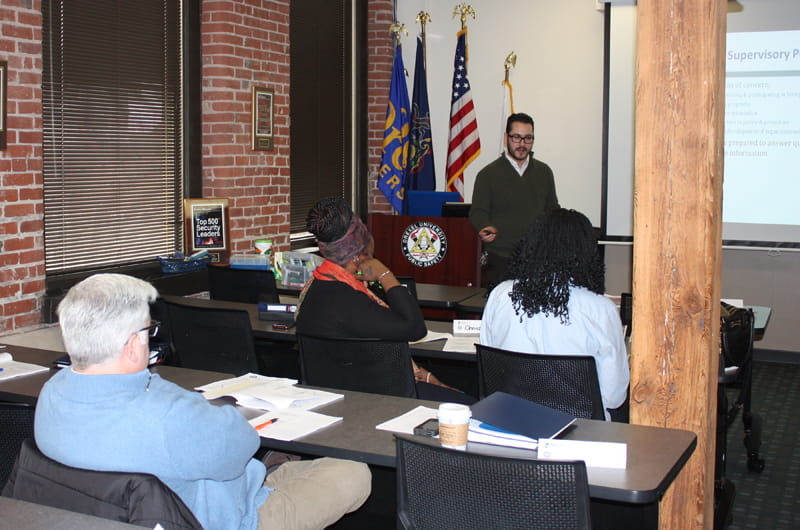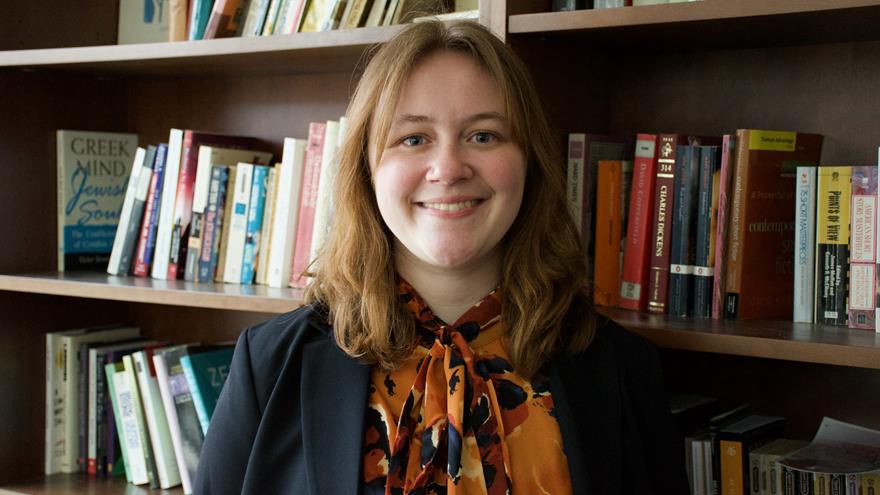Drexel Communications Center Hosts Training for Area Agencies
 By Frank Otto
By Frank Otto

Throughout February, officials from several local public safety agencies came to Drexel to learn the high standards and practices under which the Drexel University Department of Public Safety Communications Center operates.
Drexel’s Communications Center, which fields calls and dispatches police, fire, EMS, security on campus, is the only stand-alone college or university communications center accredited by the Commission on Accreditation for Law Enforcement Agencies (CALEA).
Such a standing makes the Drexel Department of Public Safety Communications Center (DUPSCC) a prime training ground.
“As Drexel’s vision embraces co-operative education, the ability to foster multi-agency cooperation is something that the Drexel Department of Public Safety’s mission and vision encourage,” said Colin Quinn, communications accreditation manager in the Department of Public Safety, who serves as an instructor. “The sharing of information and perspective is a powerful means to make your agency stronger.”
Supervisors training was offered in February to personnel from the University of Pennsylvania’s Department of Public Safety, Temple University’s Campus Safety Services and the Amtrak Police Department’s National Communications Center.
Quinn feels having agencies that serve the same city, with Amtrak Police operating out of 30th Street Station, take the training at a place like Drexel is beneficial.
“As the instructor and host agency, you know what training is needed in your area,” Quinn said. “By hosting a class, especially between four agencies that face similar challenges, all within a few geographic miles of each other, the unique training that is needed in your area can be delivered to your door.”
The Communications Center will host another March 23–25 for certifying training officers. All of the courses are designed by the Association of Public-Safety Communications Officials (APCO), an international organization for public safety communications professionals.
Quinn and his team bring a unique experience to the training that staff from Penn and Temple relate to: a constantly changing population.
“Each year, a quarter of the service population graduates,” Quinn said. “Staying in tune with the ever-evolving needs of our population and the technological developments associated with the public safety services field forces the DUPSCC to be constantly looking for ways of improvement and self-growth.”
It’s service population may turn over, but the Communication Center’s staff doesn’t.
“It’s fortunate that all of our personnel are quite experienced,” Quinn said. “The vast majority have significant experience in a law enforcement dispatch career prior to coming to Drexel University. Experience combined with outside perspective creates for a stronger collective.”
Quinn said his staff does “behind-the-scenes” work and may not be easily recognized, but they play a huge part in big Drexel events like commencement.
Although it’s nice to be with the accredited agency training others, Quinn feels the personal moments represent the Communications Center best.
“At the end of the day, hearing stories of successful interactions with the hard-working personnel of the DUPSCC is the most prestigious reward possible,” he said.
In This Article
Drexel News is produced by
University Marketing and Communications.
